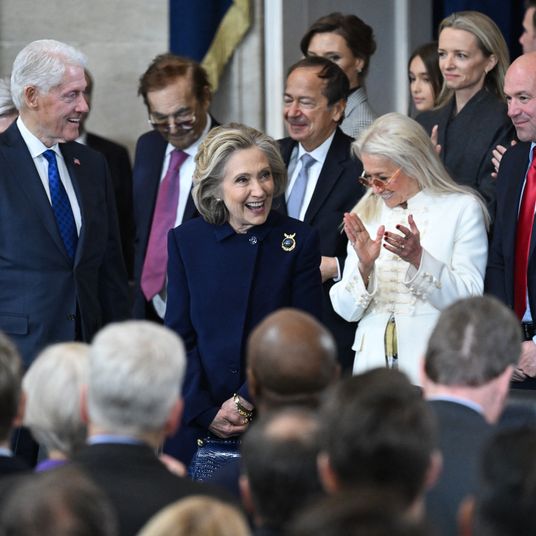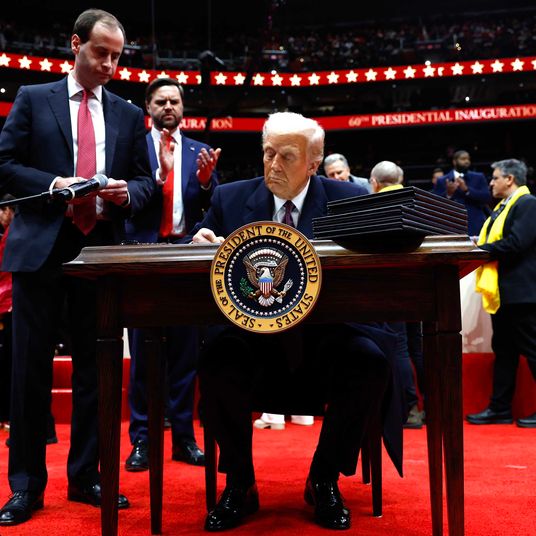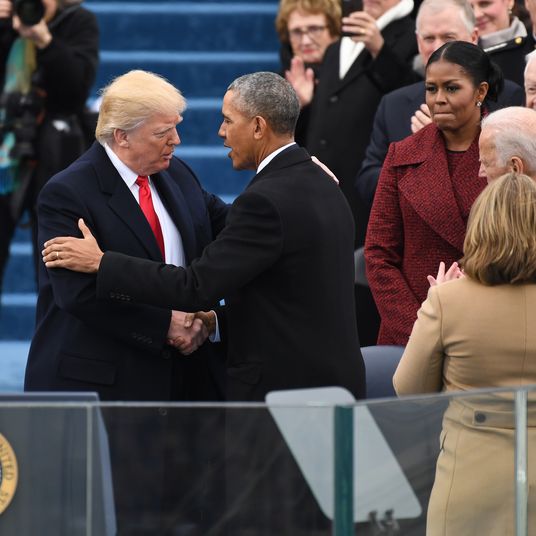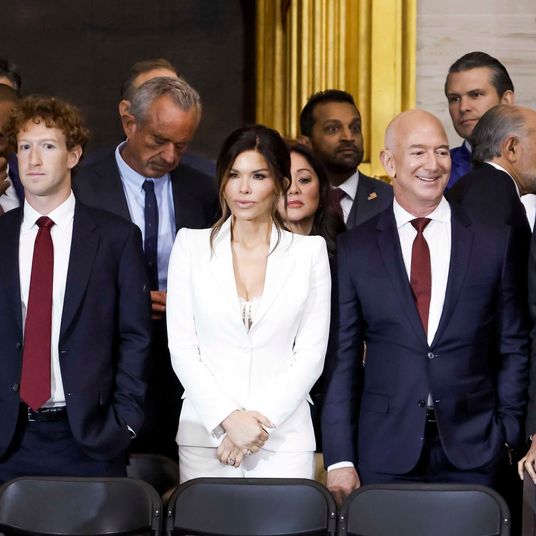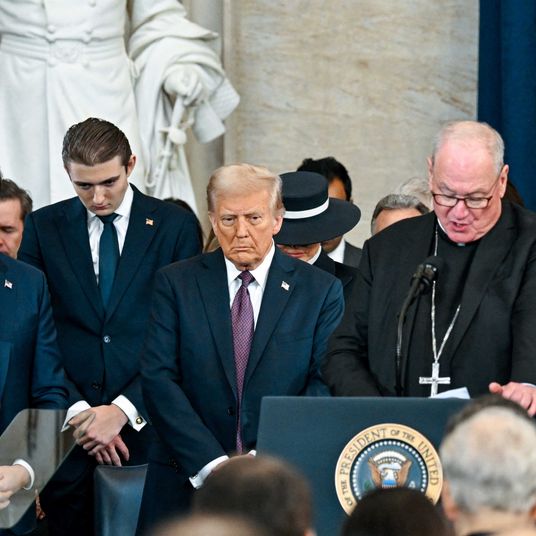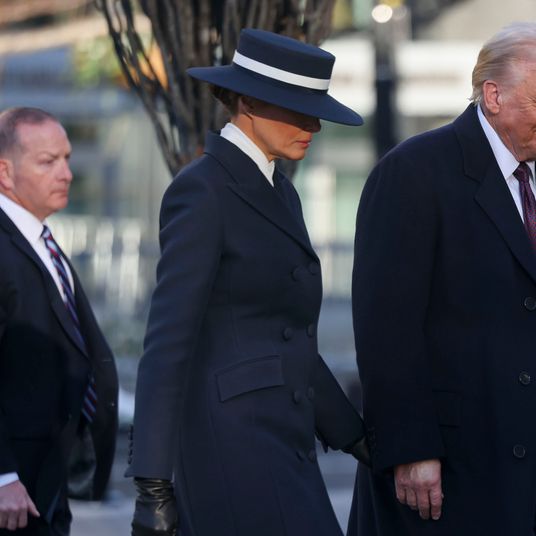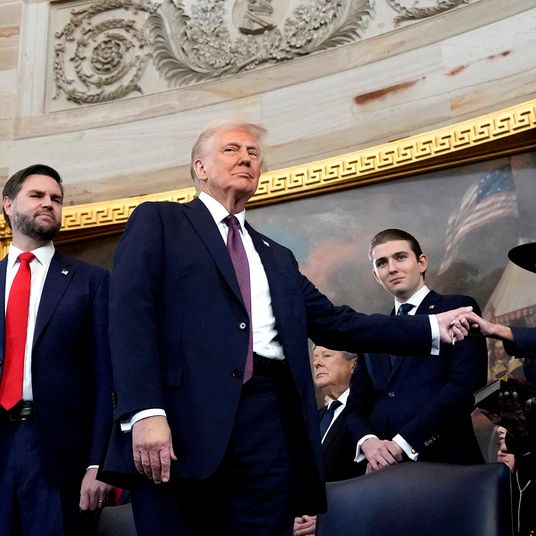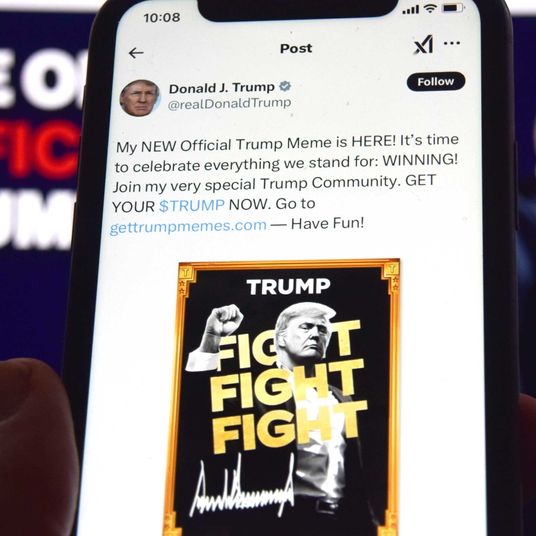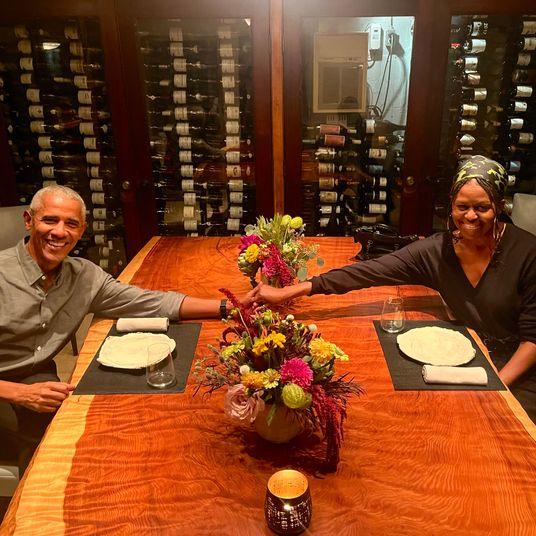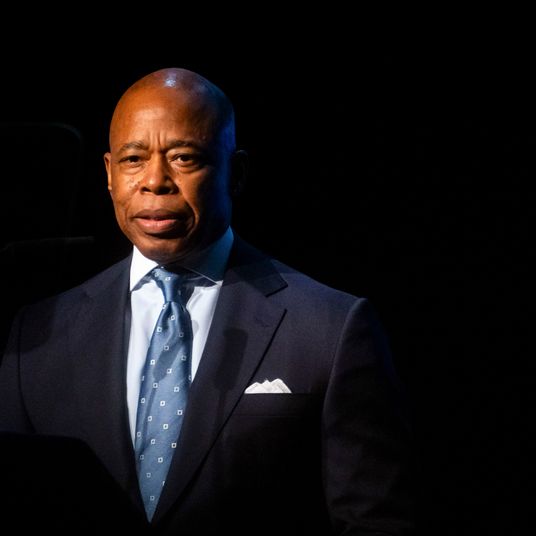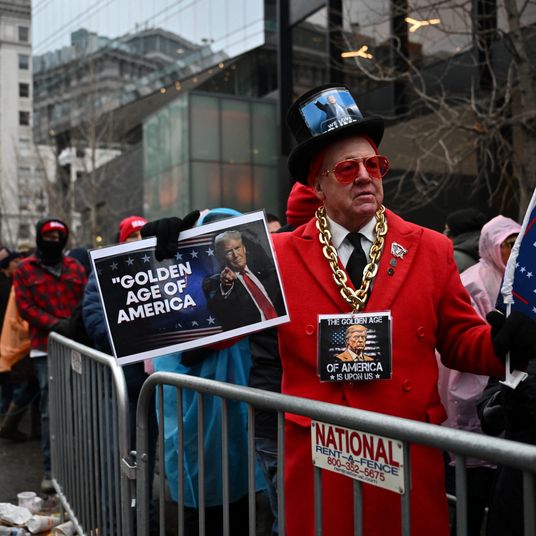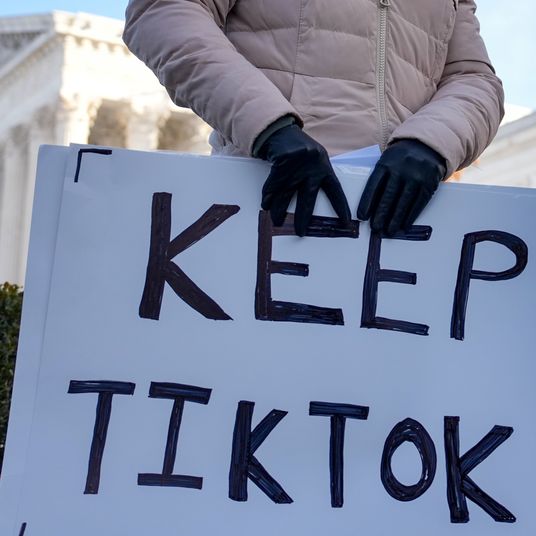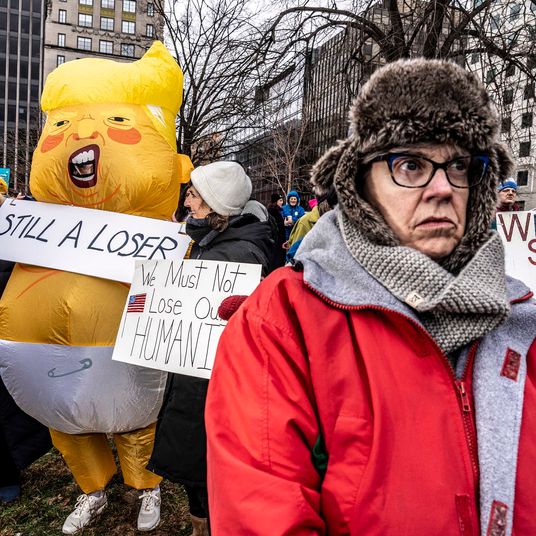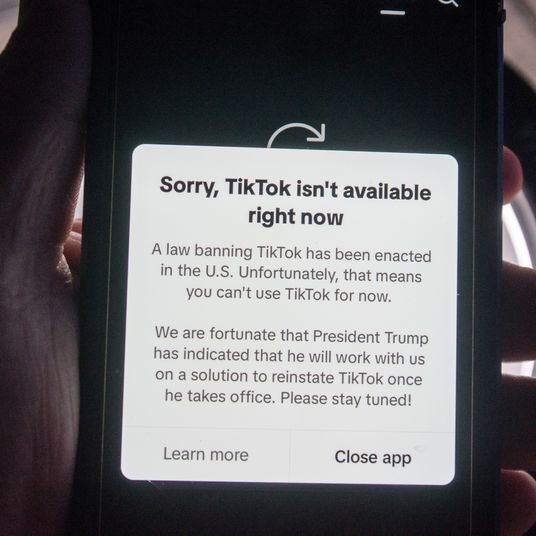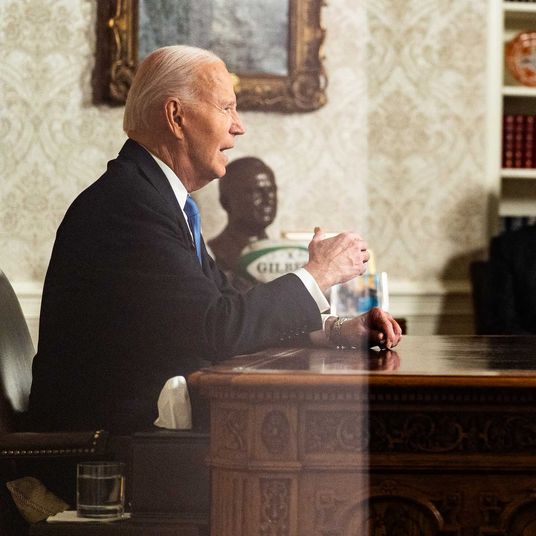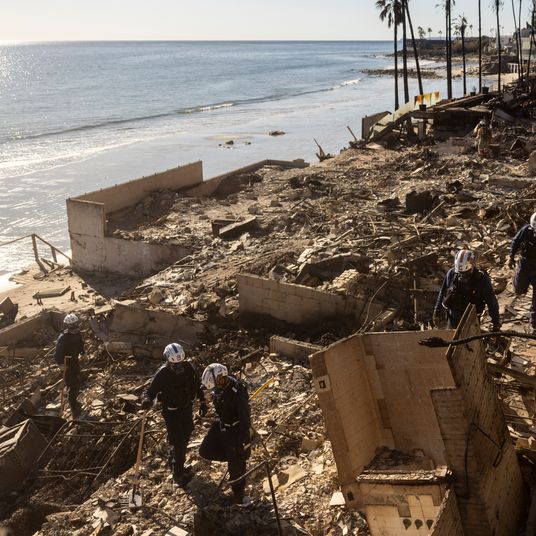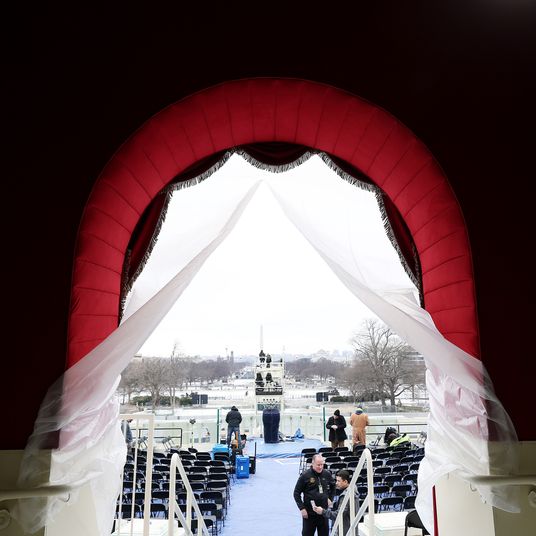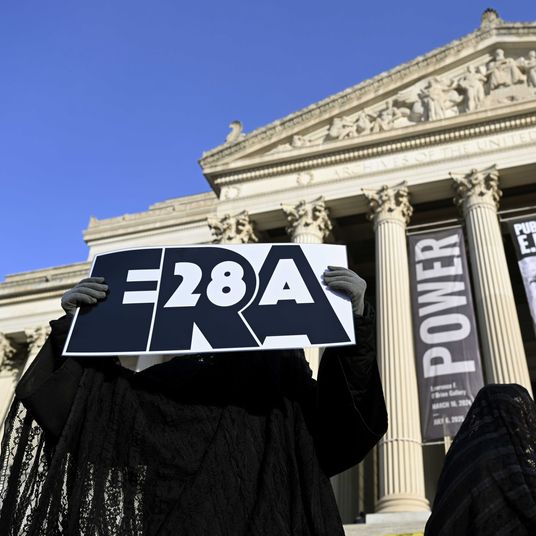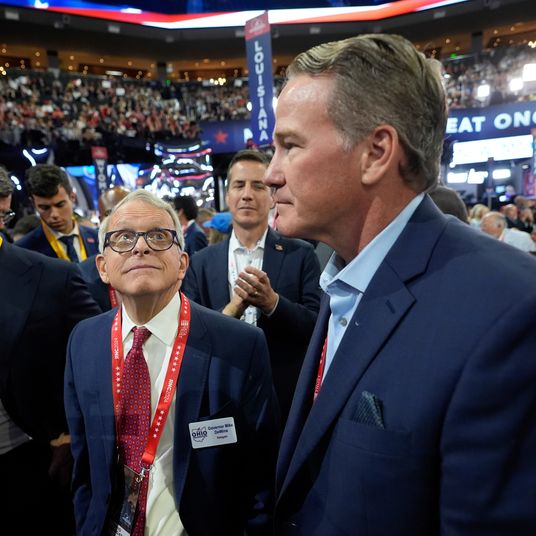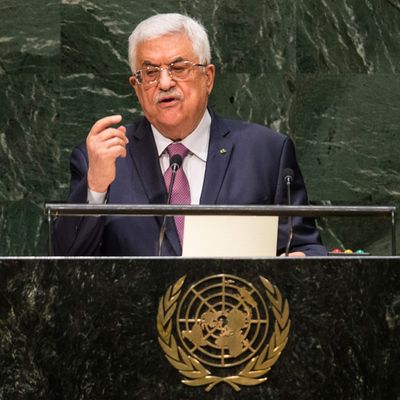
Some used their slot at the U.N. to deliver heartbreaking poems about climate change, but Palestinian leader Mahmoud Abbas decided to revisit this summer’s war in Gaza and rehash war-crimes allegations against Israel.
“Israel has chosen to make it a year of a new war of genocide perpetrated against the Palestinian people,” Abbas said in a speech Friday, referring to the 50 days of military action that ended recently, in anticipation of a long-term truce. More than 2,000 Palestinians and 72 Israelis died during the fighting. “We will not forget and we will not forgive, and we will not allow war criminals to escape punishment,” Abbas said.
He also demanded a time table for Israeli withdrawal from Palestinian territories and an end to the “racist and colonial” occupation. That’s going to be difficult, seeing as Israel recently announced a plan to build nearly 300 homes in the West Bank, and claimed about 1,000 acres near the town of Bethlehem.
Now, remember: This is the Palestinian leader the West relies on to make peace happen between Israelis and Palestinians. During his whirlwind peace tour in Israel this July, Secretary of State John Kerry made time to see Abbas in between visits with Israel’s prime minister Benjamin Netanyahu. (He couldn’t meet with other Palestinian officials anyway, because the U.S. considers them members of a terrorist group.) Sure, both sides have accused one another of war crimes throughout the most recent conflict, but Abbas’s rhetoric on the international stage indicates that the anticipated peace process will not go quite as smoothly as one might have hoped.
Abbas’s U.N. address came just days after his party, Fatah, made a new pact with the militant and political group Hamas for a postwar coalition government in Gaza as part of the peace effort. The two sides had previously reached a similar deal in April, but the government never materialized. The tough talk may just be posturing to beef up his reputation as a strong leader, but is sure to ruffle some feathers. Fingers crossed that it doesn’t interfere with negotiations for a long-term deal.





